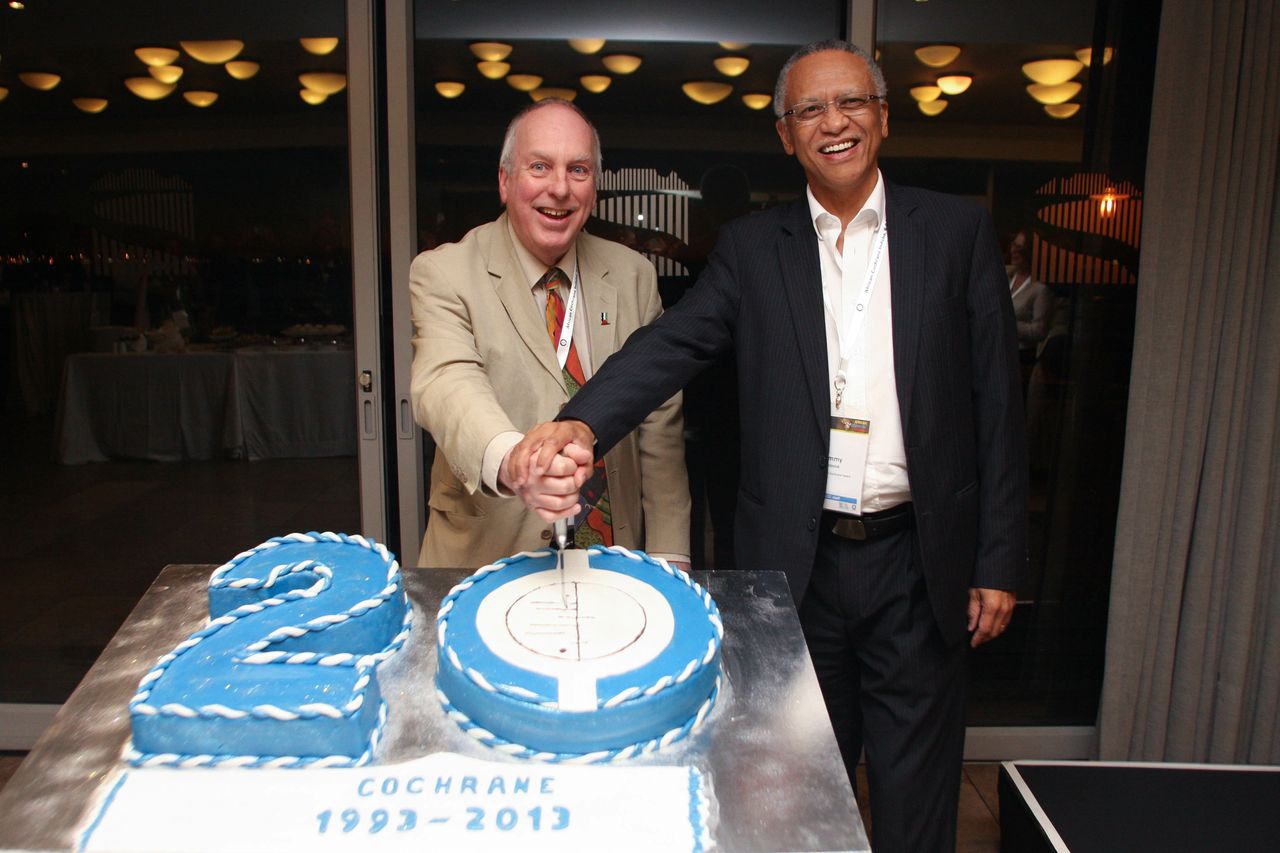A Collaboration of Friends: Getting to Know Cochrane
Karen Daniels from the South African MRC reports back from the African Cochrane Indaba 2013.
Once in the not too distant past, one of my co-authors on a paper suggested that we ask for comments on the paper from a person I had never met. I wondered at the time why a British knight would take the time to comment on a paper written by a person he had never met and for which he would get no more credit than a line in the acknowledgements section. Last week I attended the African Cochrane Indaba where I had the great pleasure of not only meeting Sir Iain Chalmers but also of dancing with him – and I get it!
Having only ever hung around the edges of the Cochrane Collaboration, it is not until this week that I really understood what this collaboration is about. What I now know for sure is that it is indeed a collaboration founded on the values of friendship and mentoring.

I don’t particularly like conferences. I find them long and boring and I have great difficulty in starting up conversations with strangers about my work and theirs. But the African Cochrane Indaba was different. This conference was designed around teaching and sharing skills in Cochrane methods. While there were some “big names” doing some of the teaching, there was also a concerted effort to have African Cochranites running most of the workshops. From my discussion with participants from Africa, this was much appreciated and a source of great pride. The fact that these African Cochranites could do this teaching with such confidence and skill is largely, in my opinion, due to efforts on the part of people like Sir Iain Chalmers, Paul Garner, Jimmy Volmink, Justus Hofmeyr and a long host of others. These forerunners of Cochrane not only in Africa, but in the world, give freely of their time so as to impart skills in order to ultimately save lives – and this is in my experience is “the Cochrane Way”.
I understand fully that lives are saved by more than evidence from systematic reviews. However, for these reviews to make a contribution they need to be conducted excellently, and that is what I saw encouraged at this Indaba. In addition, although it was never mentioned explicitly, there was a clear message that research to address health priorities in Africa needs to be led by African researchers. Slides shown by Paul Garner from Liverpool School of Tropical Medicine showed both that we have a long way to go to achieve this, but also that African Cochranites are increasingly influencing international health policy with the results of their research. This is definitely something to be proud of. There is still much more to do, including working more closely with policy makers. But no-one shied away from these issues during the Indaba.
As a feminist I do have one bone to pick though – next time I would like to see more African women, from outside of South Africa, on the podium!
For now – well done!
Karen Daniels is a specialist scientist at the Health Systems Research Unit of the Medical Research Council in South Africa. Although originally trained as a qualitative researcher she has come to see the value of incorporating a broad spectrum of research methods in addressing health systems challenges.
Competing interests: Karen Daniels is a member of the editorial board for PLOS Medicine and a member of the Cochrane Collaboration.



It was really a wonderful conference! I got to meet Sir Iain Chalmers in person and even had a 2ominutes discussion with him! The Cochrane collaboration has gone so far in 20 years but there is still a lot to do. I now have a better understanding of the activities taking place within the collaboration and I will better plan my contribution especially relating to issues specific to the African continent.